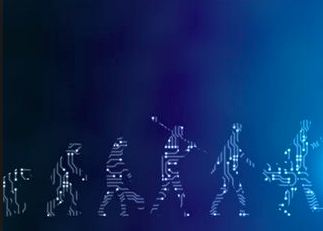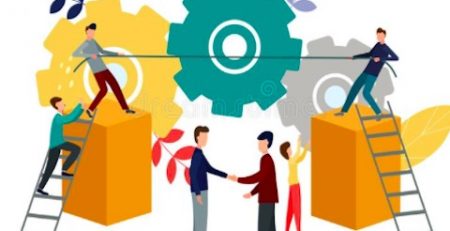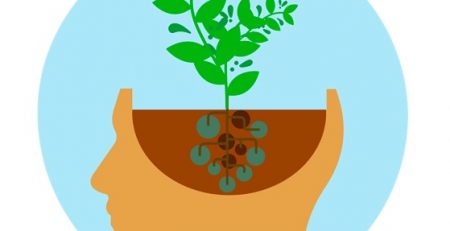Adult Development Theory: How Can Leaders Grow As Adults? Part 1
Written By: Cahide Akkuzu
Reading time: 6 minutes
Robert Kegan, a renowned professor at Harvard University Graduate School of Education, has been studying adult learning and professional development for more than 30 years. His insights about the development of adults’ complex and multidimensional thinking capacity reveal the fact that 58% of American adults with college degrees actually live psychologically in the stage of adolescent development. He calls this stage a “Socialized Mind” and this stage has no connection to age. Kegan describes them as people who identify themselves based on group norms and have difficulty seeing and understanding different perspectives. Growing up physically and getting older does not necessarily mean that we are also developing mentally, psychologically and emotionally. I find this fact to be very important. What does that mean for our day to day interactions with the adults around us? I find it very interesting to take a closer look at people and leaders who are having the responsibility to guide and lead others. What adult development stage are they at and how is that impacting the way they are guiding and leading others?
We are familiar with the different stages of development of children. But the work on adult development that will help us understand where we are as adults and where we want to be is relatively new. This is where Robert Kegan’s Theory of Adult Development comes into play. This theory shows that, just like children, adults go through several different stages of development. Becoming an ‘adult’ means that a person is transitioning to higher stages on the development continuum. Becoming an ‘adult’ means that a person is developing an independent sense of self and is gaining more wisdom and social maturity. It is about developing self-awareness, becoming more in control of our behavior and becoming better at managing relationships and social factors that affect us. Growing as an adult, regardless of age and IQ, is about how much a person can develop this complex and multidimensional thinking and analysis capacity, which Robert Kegan calls ‘Mental Complexity’.
Kegan highlights two important concepts that will help us to understand his adult development theory. The first is about transformation. Being an adult does not just mean being better at what we do, gaining more knowledge and skills, or learning new things. As adults, we need to transform the way we know and make sense of the world in order to advance in the developmental stages. So, we need to upgrade our operating system to higher versions so that we can increase our capacity to think and analyze in a complex and multidimensional way. Sometimes negative events that happen to us result in life-related experiences and become a catalyst for us on how we know and make sense of the world.
The second concept that Kegan highlights is the ‘Subject-Object Relationship’ which refers to the way we know and make sense of the world. When we are the subject of something, we identify our identity with our personality traits, feelings, thoughts, opinions, beliefs and assumptions. Some examples are: I am angry, I am a hard worker, I am a perfectionist, if I do every job perfectly the first time, I will be appreciated and successful. That with which we identify with is controlling us, we are in some kind of autopilot and behave in certain ways. When we look at something as an object, instead of identifying our identity with it, we can talk and think about it from an independent outside perspective. We can look at ourselves from the outside and say ‘I am a person who gets angry when I feel being treated unfairly’ or ‘I am a person who likes to do things in a perfect way’. When we talk about it, our personality traits, feelings, thoughts, opinions and beliefs, we have the opportunity to question it by making an objective and multidimensional assessment about it. As a result, we can choose to get off the autopilot and engage in conscious attitudes and behaviors. Looking at ourselves as an object gives us choice! So, the ‘Subject-Object Relationship’ is about making the shift from being a subject (I am … ) to looking at myself as an object (I have … ), and thus liberate, distance and detach myself from a certain personality trait, opinion, feeling or believe that I have.
Let’ s look at the 5 stages of Kegan’s Adult Development Theory:
Stage 1: Impulsive Mind
Stage 2: Imperial Mind
Stage 3: Socialized Mind
Stage 4: Self-Authoring Mind
Stage 5: Self-Transforming Mind
Stage 1 is related to children. In this article, I will focus only on the stages related to adults. As adults we may behave at different stages while we are with certain people or we may find that we are transitioning between these stages. While reading the characteristics and behavioral patterns of each stage, please take a moment to make a self-assessment and answer the following question:
What stage of adult development are you at in specific situations, settings, or when you are with certain people?
While you make that self-assessment, instead of identifying with this specific adult stage feature, you will have the opportunity to make an objective and multidimensional evaluation of your behavior and subsequently you will be able to question it. This is a powerful way to make a subject-object relationship shift.
Stage 2: Imperial Mind
Although this phase describes the behavioral patterns of adolescents, we can easily observe these characteristics in some adults that we see around us. Relationships are functional for adolescents and adults who know and make sense of the world at this stage of development. They see people as a tool to meet their own needs. They are focused on their own needs, interests and agendas. They care about how others perceive them because that perception can have a tangible consequence for them. They follow certain philosophies, stream of thoughts and rules, not because they believe in them, but to be liked, rewarded, or not be punished by someone else. For example, they follow traffic rules not because they care about the rights of other, but because they do not want to pay a penalty when caught. They obey their manager, not because they agree with their manager, but because they think if they support their manager, they will get a better performance score at the end of the year. Especially in places that tend to have a more autocratic style of leadership culture, we come across adults whose level of development remains at this stage.
Stage 3: Socialized Mind
The ideas, norms and beliefs of the people and systems around them (family, society, culture, ideology, etc.) are important for adults who know and make sense of the world at this stage of development. These adults, in a sense, still exhibit adolescent characteristics because their behaviors are aligned with the values and expectations of the environment they identify with. It is important for them to be a part of the crowd, to be in harmony with the thoughts of the majority and to meet the expectations of the people they accept as authority. Adults at this stage of development strive to give people the messages that are expected from them, they put a lot of effort into creating a perception about themselves that others are expecting to see. Their need for approval is very high, they do not believe that a job they do without being approved by someone they care about is successful. They frequently make assumptions by reading between the lines of others’ statements. They care very much about external references, they have difficulty expressing their own desires and thoughts. If their external references see compliance with traffic rules as an important value, they will also comply. For example, if they want to advance and promote in their career, they look at how others have accomplished this and they choose the same methods and strategies. They determine their actions according to the frame of reference of those who will promote them. Most adults are at this stage and unfortunately cannot advance their development beyond this stage.
Stage 4: Self-Authoring Mind
Adults who know and understand the world at this stage of development objectively evaluate the environment, conditions, situations, opinions, and expectations of their social circles and determine an attitude according to their own opinions and values. Their complex and multidimensional thinking and analysis capabilities are much more advanced than adults at the socialized mind stage. They have their own beliefs, values, a certain attitude they consciously choose towards life, a reference framework they set for themselves, a mission, and strategies. These adults consciously question what is going on around them and consciously choose the approach, behavior and attitude that is right for them according to their own values and priorities. Their aim is not to please others, but to live their own values and to realize their own mission. They filter the information coming from others and only consider and support information that is in alignment with their own values. These adults take responsibility for their own situation, feelings, and thoughts. For example, they do not say ‘my team does not take responsibility’, they say, ‘I cannot make my team take responsibility at the level I want’. Since they do not define their own identity with their personality traits, emotions, thoughts, opinions, and beliefs, they are capable to develop a more objective approach and achieve their goals through a more independent frame of mind.
Stage 5: Self-Transforming Mind
Adults who know and make sense of the world at this stage of development also have filters and frames of reference, but with their complex and multidimensional thinking and analysis capabilities, they do review, question and update their own filters and frames of reference as needed. These adults both value their own filters and at the same time avoid becoming a slave of their own filters. In a rapidly changing world, they do not believe that any view, approach, or attitude alone can represent all truth. While they examine and question what is happening around them, they also examine and question their own impact on the environment. They filter and evaluate the information coming to them from others through a larger filter. They are open to new possibilities and to change themselves by developing new filters through which they would know and make sense of the world.
In summary, adults at this stage start their own transformations and they do this over and over again. Leaders in corporate environments take the organization out of its comfort zone, consciously review themselves, their teams, their business models, and make a realistic diagnosis of their situation by looking through different filters. Most of the time these leaders face many resistances from their own organization, such as: ‘’We are doing well! Why are we reshuffling and changing things now?’’ But, for sustainable success it is inevitable that we must change, transform our own thinking and update our own filter.
According to Kegan, only those adults that develop an independent identity and sense of self, and are so detached to that sense of self that they are open and flexible to change it, are the adults that reach stage 5. These adults are no more the slaves of their own views, they are no more the subject, they make the shift to looking at themselves as objects, becoming capable to question, review and update their own beliefs, values and attitudes.
It’ s not easy to reach this stage and to put this into practice. I have a strong belief that even a small progress along this path can make a huge difference in how we know and make sense of the world. Let’ s go back to the question I asked at the beginning:
What stage of adult development are you at in specific situations, settings, or when you are with certain people?
According to Kegan, people often see themselves at a higher stage than they actually are. We are making very optimistic assessments about ourselves! So, what stage of adult development would you like to be at? What stage of adult development are people around you at? What stage of adult development are the leaders around you at? Start making these observations.
In part 2, I will give you insight into how you can develop yourself in order to make the transition to higher stages of development.
Resources:
Robert Kegan – Immunity to Change: How to Overcome It and Unlock the Potential in Yourself and Your Organization
Robert Kegan – An Everyone Culture: Becoming a Deliberately Developmental Organization
Context Professionals Corporate Coaching and Consulting
https://www.contextprofessionals.com/en/



















